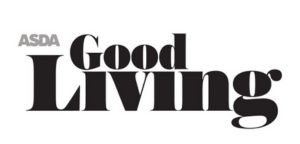This post may contain affiliate links for which I earn a small commission at no extra cost to you. For more info, check out my Disclosure Policy. Thank you for your support!
If you’re a fan of gluten free baking then the chances are you’ve come across baking powder in a recipe. But what is baking powder and is baking powder gluten free?
Starting a gluten free diet can be confusing – you know to look for gluten in the obvious things like flour, bread or pasta.
But it’s the little things like baking powder that often trip you up. Because quite frankly, you’ve never had to think about what’s in baking powder before.
So what is baking powder, how is it used, and is all baking powder gluten free? And is it OK for people with coeliac disease to use baking powder?
Let me help you out by answering all your questions, including looking at how to use baking powder in recipes and where to find gluten free baking powder.

What is baking powder?
Baking powder is a white powder which is used as a leavening agent in bakes such as cakes and cookies.
Simply put, it helps these baked goods rise. You can either add it to plain gluten free flour or use gluten free self-raising flour, which already contains baking powder.
Usually baking powder is made from bicarbonate of soda (or baking soda in the US), cream of tartar, and then some form of filler powder.
Back in the day baking powders contained wheat but nowadays most use cornflour (corn starch) or rice flour as the filler, meaning many are gluten free.
Some also use potato starch to thicken the mixture.
When added to the wet mixture the baking powder reacts and causes a chemical reaction.
This forms carbon dioxide, creating bubbles, causing the mixture to rise.
Double acting baking powders will also contain sodium aluminium sulfate, which helps to delay the quick rise found in single acting baking powder. This is also gluten free.
Baking powder vs baking soda
It’s important to note that baking powder and baking soda are not the same thing.
Baking powder is a white powder made from a mixture of bicarbonate of soda, cream of tartar, and a filler starch or flour.
Baking soda is the American name for bicarbonate of soda. In the UK we don’t tend to ever call it baking soda, which is why it can be easily confused.
Therefore baking powder and baking soda are different. And best not to get them muddled – or you might find your cakes won’t rise!

Are all baking powders gluten free?
While many baking powders are free from gluten, it is always best to double check the ingredients list.
And don’t assume that just because something has been gluten free before, it will always stay this way.
Often manufacturers can change recipes so even if you use a product regularly it’s always best to keep an eye on the ingredients in case anything changes.
Some baking powders in the UK will be marked as gluten free. Others won’t be, but will be gluten free by ingredient.
Look out for ‘may contain’ warnings too, as anything at risk of cross contamination from gluten is not safe for anyone with coeliac (celiac) disease.
Which baking powders are gluten free in the UK?
Thankfully in the UK we have a whole host of baking powders to choose from for all your gluten free baking needs.
The following baking powder brands are gluten free at the time of writing:
- Doves Farm Baking Powder (certified GF)
- FREEE Gluten Free Baking Powder (certified GF)
- Dr Oetker Baking Powder (certified GF)
- Aldi The Pantry Baking Powder
- Asda Baking Powder
- Sainsbury’s Baking Powder
- Waitrose Baking Powder
- Bob’s Red Mill Gluten Free Baking Powder (certified GF)
- Borwick’s Gluten Free Baking Powder (certified GF)
The following baking powder is NOT gluten free at the time of writing:
- Tesco Stockwell & Co Baking Powder
Unfortunately it contains wheat starch as the thickener which means it is not safe for coeliac consumption.
Personally I think this is a huge shame as most baking powders are gluten free as standard – maybe one day this will change!

How to use baking powder
All of my baking recipes that use baking powder will have specific instructions on them as to when to add it.
Typically baking powder is used in recipes like cakes, muffins, cookies, crumble and pancakes.
If a recipe dictates gluten free self-raising flour and you only have gluten free plain or all purpose flour, you can add baking powder to it.
As a rule I always add 1 tsp gluten free baking powder to 100g plain gluten free flour to create a gluten free self-raising flour.
To make your own homemade baking powder, simply mix half a teaspoon or bicarbonate of soda with half a teaspoon or cream of tartar.
This will create the equivalent of one teaspoon of baking powder.
Recipes which use baking powder
If you’ve got some gluten free baking powder in the cupboard and you’re itching to use it up, here are some recipes to get you started:
- Gluten Free Victoria Sponge Cake
- Plain or Fruit Gluten Free Scones
- Fluffy American Pancakes
- Chocolate Chip Cookies
- Gluten Free White Choc and Raspberry Muffins
- Pear and Chocolate Crumble
You can also check out all my gluten free baking recipes here if you need even more inspiration!

NEED MORE ADVICE ON A GLUTEN FREE DIET?
If you’re looking for more helpful hints and tips for living with coeliac disease and life on a gluten free diet then look no further.
Hopefully these articles will be of interest but you can always check out my Coeliac Tips page as well for all my helpful guides.
- Is Orzo gluten free?
- Gluten Free Easter Eggs
- Is Corona gluten free?
- Guide to Gluten Free Christmas Chocolate
- Is Starbucks Pumpkin Spice Latte gluten free?
- Guide to gluten free oat milk (UK)
If you’ve got anything you want help and advice on, check out my Instagram or Facebook group or comment on this post with your questions.













